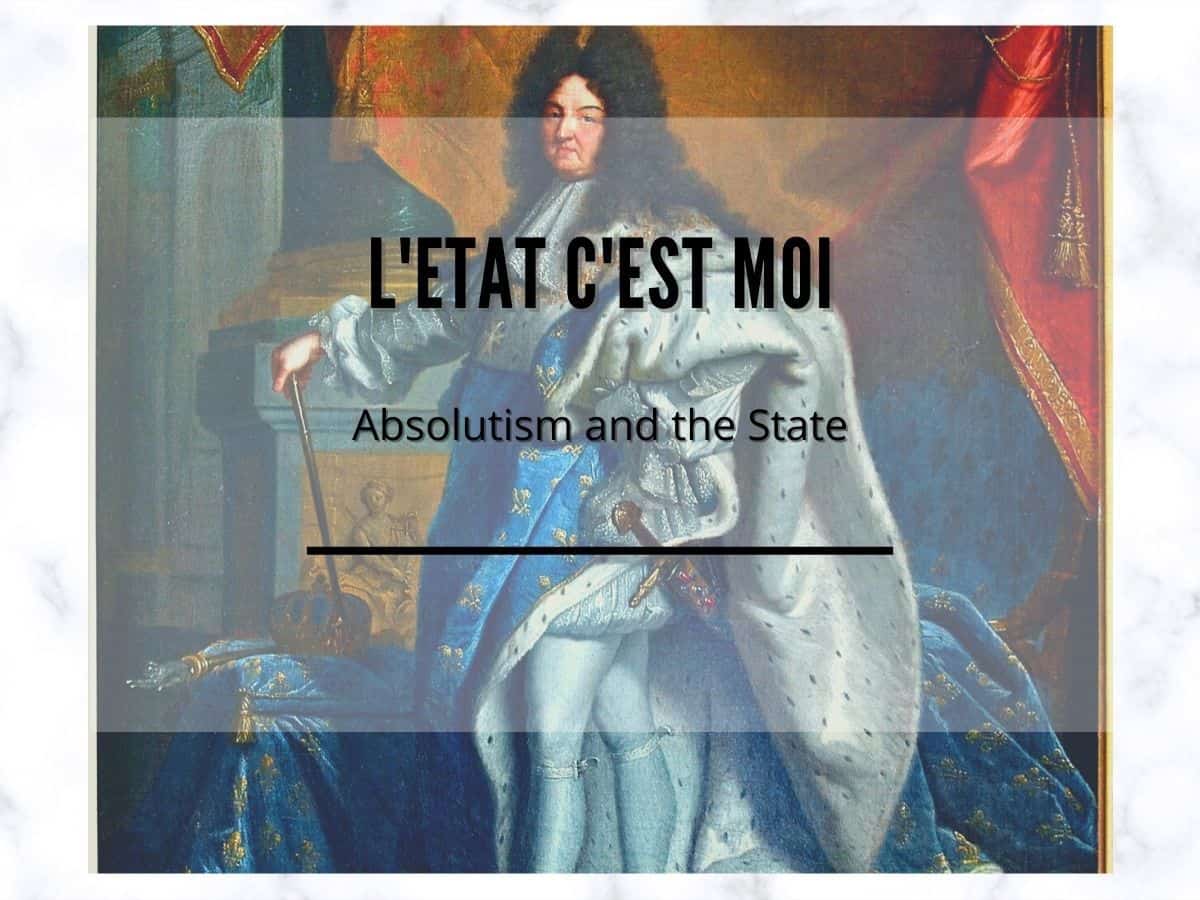Target Student Group: I will be using these some of these sources in my tenth grade World History classes.
Lesson context – My students are currently studying the age of Absolutist European monarchies. During the past week, students have learned the context of significant absolutist rulers in France, England, and Russia and completed a compare and contrast activity. This week, students will engage in a review of key ideas from the unit and complete an ABC book of Absolutism. This lesson will serve as a review of why some governments would pursue an absolutist ideology.
The four main content areas we will address include: (1) understand the concept of absolutism (2) compare and contrast absolutism in France, Russia, and England, (3) articulate the role of absolutist policies in European expansion and colonization, (4) compare and contrast pros and cons of different government types.
Document 1 – Source: Niccolò Machiavelli, The Prince, 1513
…For all men in general this observation may be made: they are ungrateful, fickle, and deceitful, eager to avoid dangers, and avid for gain, and while you are useful to them they are all with you, but when it [danger] approaches they turn on you. Any prince, trusting only in their works and having no other preparations made, will fall to ruin, for friendships that are bought at a price and not by greatness and nobility of soul are paid for indeed, but they are not owned and cannot be called upon in time of need. Men have less hesitation in offending a man who is loved than one who is feared, for love is held by a bond of obligation which, as men are wicked, is broken whenever personal advantage suggests it, but fear is accompanied by the dread of punishment, which never relaxes.
Close reading prompt
Who wrote this? What claims does the author make about how a prince should rule? How does the language indicate the authors perspective?
Document 2 – Source: King Louis XIV of France in 1660
The head alone has the right to deliberate and decide, and the functions of all the other members consist only in carrying out the commands given to them… The more you grant… [to the assembled people], the more it claims.. The interest of the state must come first.
Close reading prompt
Who wrote this? What is the author’s perspective? What claims does the author make about the government? How does the document’s language indicate the author’s perspective? Is it reliable?
Document 3 – Source Montesquieu, The Spirit of the Laws, 1748.
Although the forms of state—monarchy, aristocracy, and democracy—were united in English government, the powers of government were separated from one another. There can be no liberty where the executive, legislative, and judicial powers are united in one person or body of persons, such concentration is bound to result in tyranny and oppression.
Close reading prompt
Who wrote this? What is the author’s perspective? Do the documents agree? If not, why? What claims does the author make? Which document is the most reliable?
Teachers guide
Document 1: This document was written by Niccoló Machiavelli. The author claim that princes cannot be trusting of others and must instead instill fear over their subjects. Machiavelli claims that loyalty through love turns in the face of danger, however, loyalty earned through fear of punishment never relaxes. In order for a prince to be respected, they must be feared rather than loved. The author uses language to describe people like ‘wicked,’ ‘deceitful,’ and ‘ungrateful,’ to indicate their disdain for people.
Document 2: King Louis XIV wrote this. The author believes that the head of the state should make all of the decisions in government, reinforcing the idea of absolute power of the monarchy. They believe that the more power you grant to the people, the more they demand. The author uses language, such as referring to the head as making deliberate decisions and other members ‘only carrying out commands given to them,’ to indicate their perspective on how government should function. The author is not reliable because they are the king, and it is in their best interest to hold the power.
Document 3: The author is Montesquieu. Montesquieu believes that a government without a separation of powers is tyranny. This document does not agree with Machiavelli or Louis XIV, who believe in ruling through fear, and through absolute power, respectively. Montesquieu argues that the executive, legislative and judicial powers cannot be concentrated under one person or body, clashing with both the other two documents. Document three is the most reliable because it argues for a system of government closer to what we strive for in a democratic society today, including a division of powers to prevent tyranny.
Following reading these documents and responding to the close reading questions, students will be asked to compare the advantages and disadvantages of each system of government the above authors are arguing for.
Title image source: Louis XIV Rigaud Condé Chantilly, liscenced on Wikimedia Commons
Document source: Noonan, T. C. (1999). Document-Based Assessment for Global History. Portland, Maine: J. Weston, Walch. https://www.bridgeportedu.net/cms/lib/CT02210097/Centricity/Domain/3754/Scully_Absolutism_WesternCiv.pdf


Hi Nicolas, I really like the comparative nature of your post. It’s really interesting and important for students to understand that absolutism is a concept that has occurred repeatedly in history for centuries, although it may manifest itself in different ways.
The excerpts you chose are very insightful. Do you plan on having your students read longer documents than just these excerpts? Or is the conciseness key to the variety in this activity?
Hi Francesca,
Much as I would like to have my students read longer passages, brevity is unfortunately key. I do plan to revisit this topic when my students cover the enlightenment figures in the future.
Ideally, under a different set of circumstances, I would like to take the time for students to consider this era from more of a ‘history from below’ perspective, but I will need a little more autonomy in my own classroom before I can make that happen!
An interesting topic and three illustrative documents that offer students a chance to explore the subject. The scaffolding questions guide the student through an examination of each.
I can’t help but want to bring in a connection to the Trump presidency. Seems like a natural fit. But would need to be carefully scaffolded so that students could uncover the parallels rather than have them forced on them.
Thanks, Peter!
I love the idea of connecting this topic directly to our current times, but, as I mentioned above, I will need more autonomy over my teaching before I can broach that directly. My CT is cautious about being directly political, so I have instead attempted to contrast absolute monarchies with democratic/republic (political philosophy not political party) principles.
For example, when covering Louis XIV, I asked my students to reflect on how he centralized all power under himself and ruled for 72 years, as opposed to how our current systems (presumable) checks and balances and term limits.